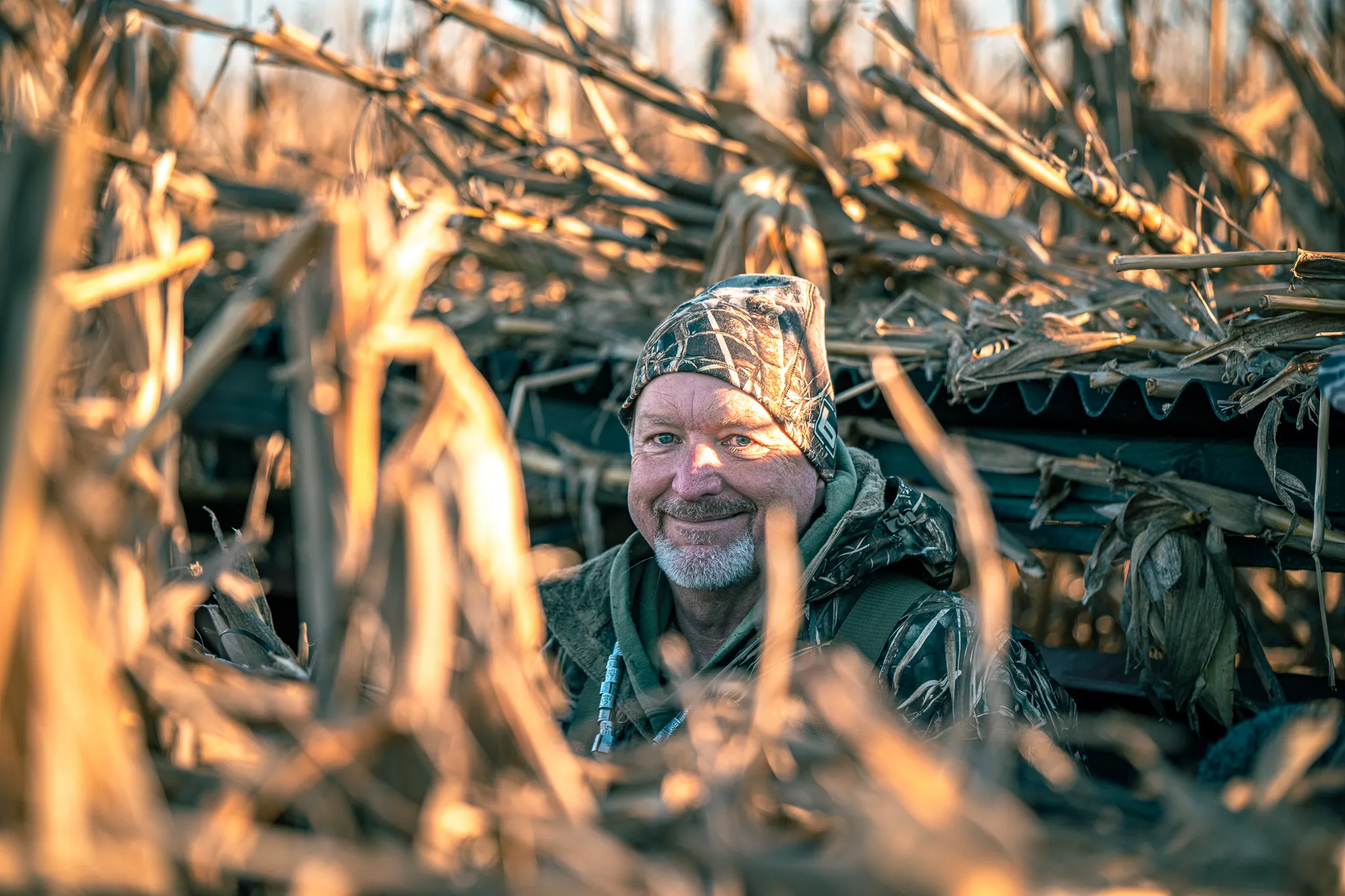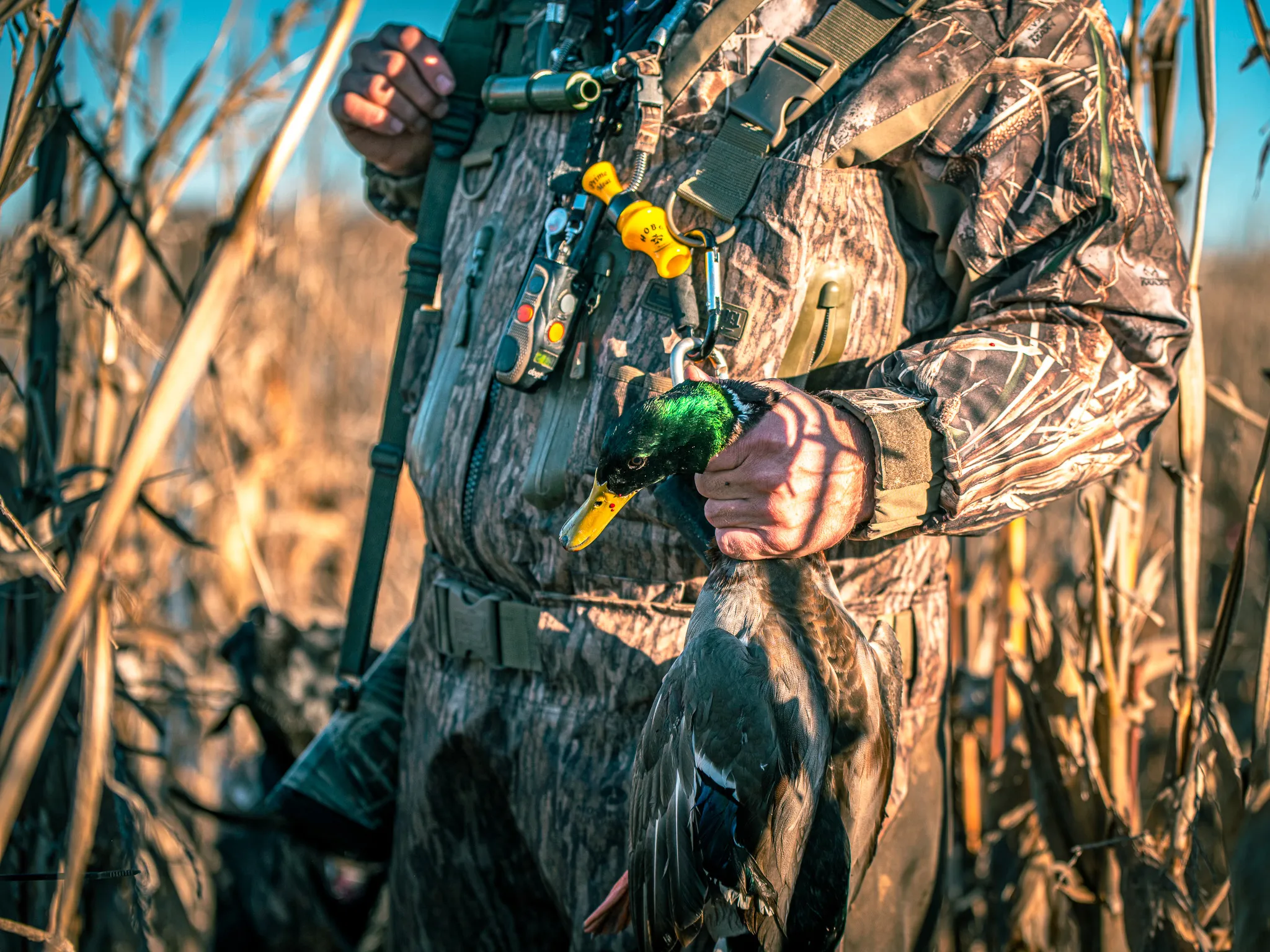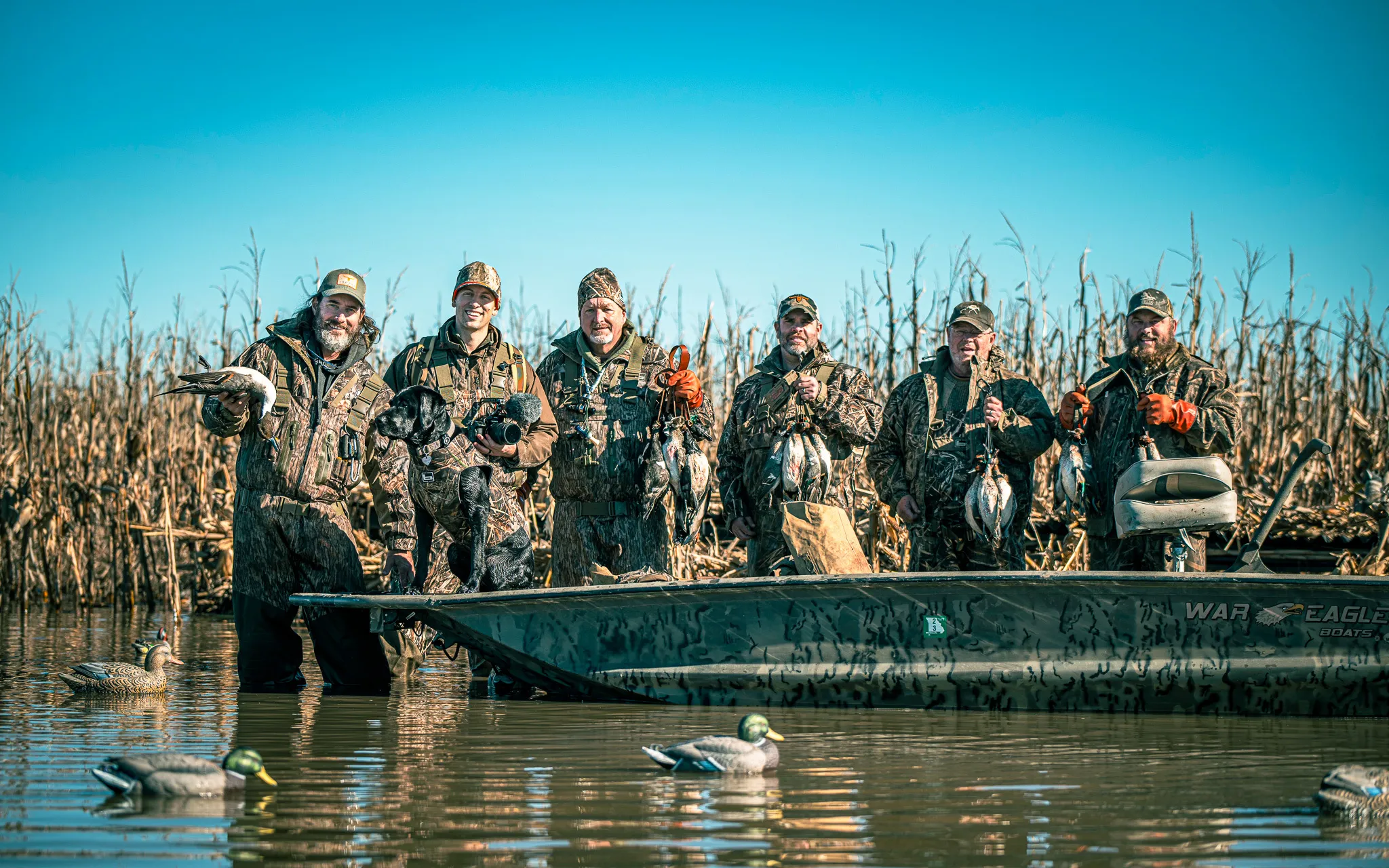Duck Calling Masterclass ft. 9X World Champion - Kent Cullum!
We were lucky enough to hunt with nine-time World Champion duck caller, Kent Cullum, this past duck season. Since then, Kent has become a good friend of Trophy Properties and Auction. So much so, that he was generous enough in his time and talent to help us create this Duck Calling Masterclass!
In this masterclass, Kent shares invaluable insights into the art and science of calling ducks, emphasizing technique, equipment, and the subtle nuances that can make all the difference in the field. Let’s break down some of his key points and tips to help you become a more effective duck caller.

The Basics of Holding and Using a Duck Call
One of the first things Kent emphasizes is the importance of how you hold and use the duck call. Many people mistakenly think it’s complicated, but Kent simplifies it:
Grip: Hold the duck call between your thumb and first finger, wrapping your other fingers around the call but keeping them open enough to let the air flow properly.
Mouth Placement: Instead of putting the whole call in your mouth, rest it on your bottom lip, much like taking a sip from a soda bottle. This method seals the call and ensures no air escapes, giving you better control over the sound.
Understanding Air Pressure and Back Pressure
Kent explains that different calls require different air pressures. Modern calls are designed to be easy to blow, but understanding back pressure is crucial:
Back Pressure: This is the resistance you feel when blowing into the call. A call with good back pressure is easier to control and allows for more realistic sounds.
Sound Control: Kent demonstrates how calls without back pressure require more effort to sound realistic, whereas his calls flow naturally, making it easier to produce lifelike duck sounds.

Mastering Different Duck Calls
Kent breaks down the different types of quacks and calls you need to master:
Quack: The fundamental sound. If a call can’t produce a good quack, it’s unlikely to be effective.
Cadences: Ducks have a variety of sounds, from coarse hens to fine hens. Each has its own quack cadence, and learning these will help you mimic the ducks more accurately.
The Importance of Realism
One of Kent’s core messages is the importance of sounding realistic. Ducks are smart, and they learn quickly. If your calls don’t sound right, they’ll avoid your location:
Happy Quacks: Use these when ducks are content and feeding. They are softer and more varied, mimicking a relaxed environment.
Alarm Calls: Avoid using these, they signal danger and can scare ducks away. Never quack with a loud and rising tone.

Practice and Equipment
Kent stresses the importance of using quality equipment. A good duck call is an investment that will pay off in the field. He also advises against starting with cheap calls as they don’t provide the necessary range to learn effectively.
Lucky for you, Kent is the owner and operator of Hobo World Champion Duck Calls! These are the calls that Kent uses in the video and that we now use in the field, we can’t recommend them enough.

Observing and Adapting
Successful duck calling involves constant observation and adaptation:
Watch the Ducks: Pay attention to how they react to your calls. If they’re coming in, keep your calls soft and natural. If they’re veering away, you might need to change your strategy.
Adjust Your Calling: Based on the ducks’ behavior, you may need to switch from aggressive calls to more subdued ones, or vice versa.
Teaching and Sharing the Passion
Finally, Kent encourages hunters to share their passion with others, especially kids. Introducing young hunters to duck calling can instill a lifelong love of the sport. Ensure their first experiences are positive by choosing good weather and active hunting days. We couldn’t agree more!
Kent Cullum’s masterclass is a treasure trove of information for both novice and experienced duck hunters. By focusing on the fundamentals, investing in quality equipment, and continuously observing and adapting to the ducks’ behavior, you can significantly improve your duck calling skills. Remember, the goal is to sound as realistic as possible and to enjoy the process.
Hopefully, these tips can help you in the field this fall. Good luck, have fun, and Feed the Family!




